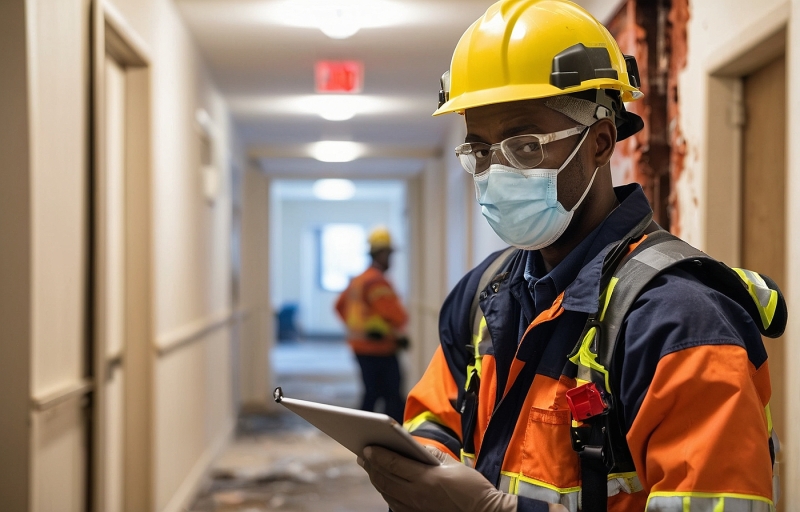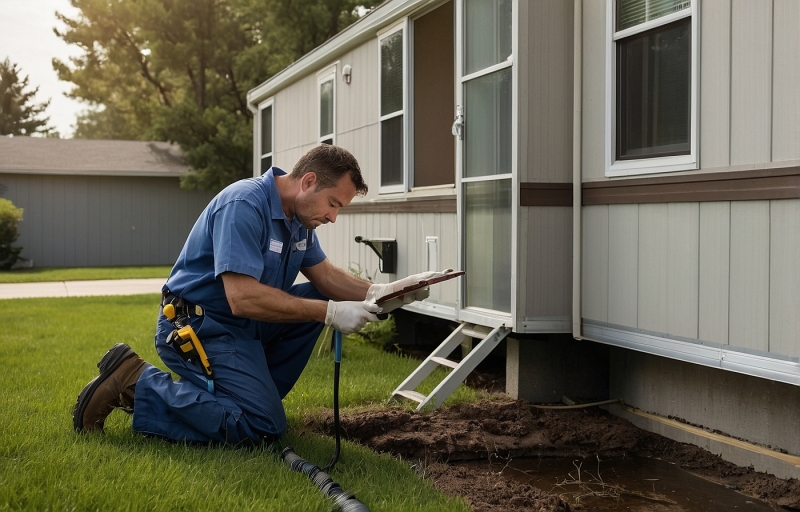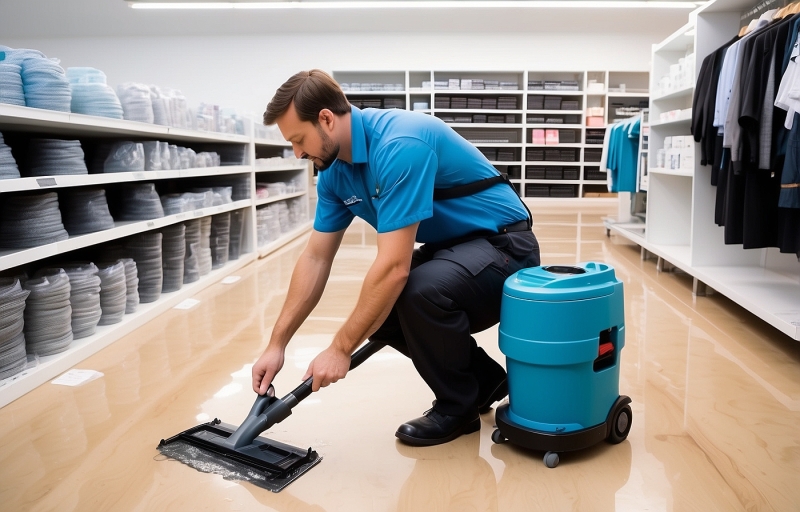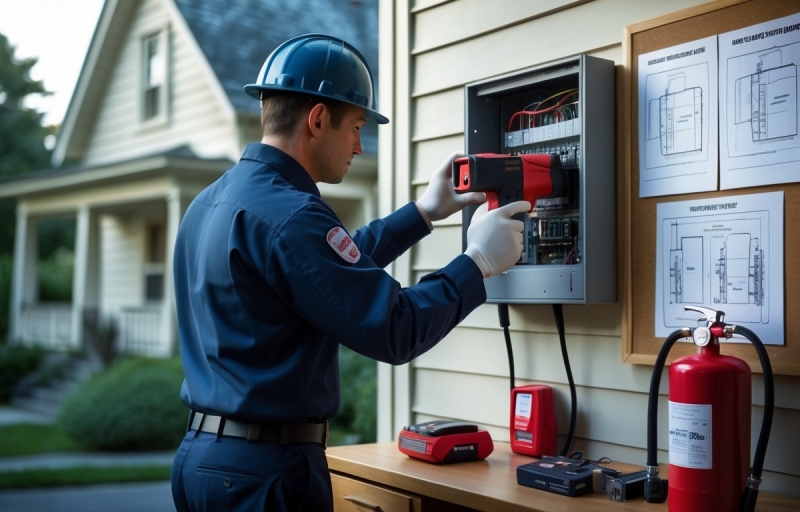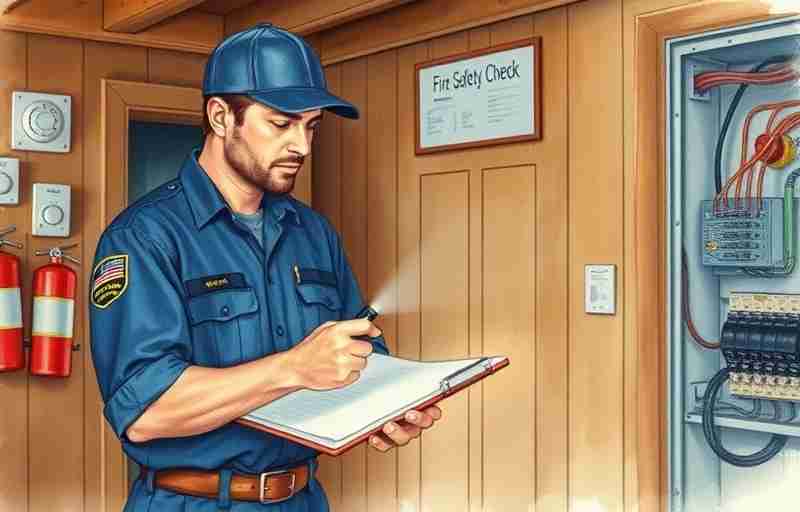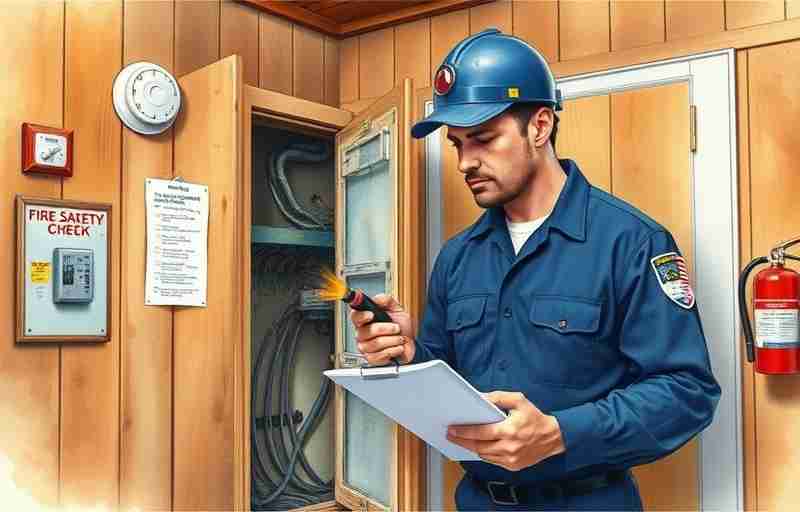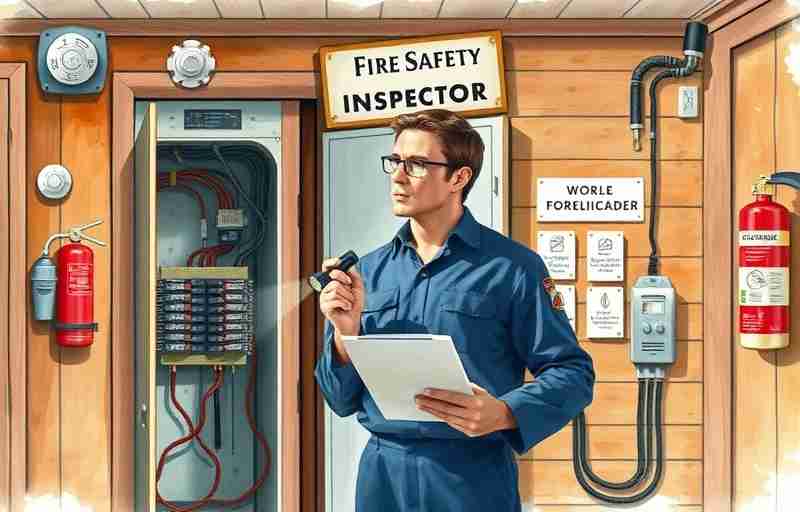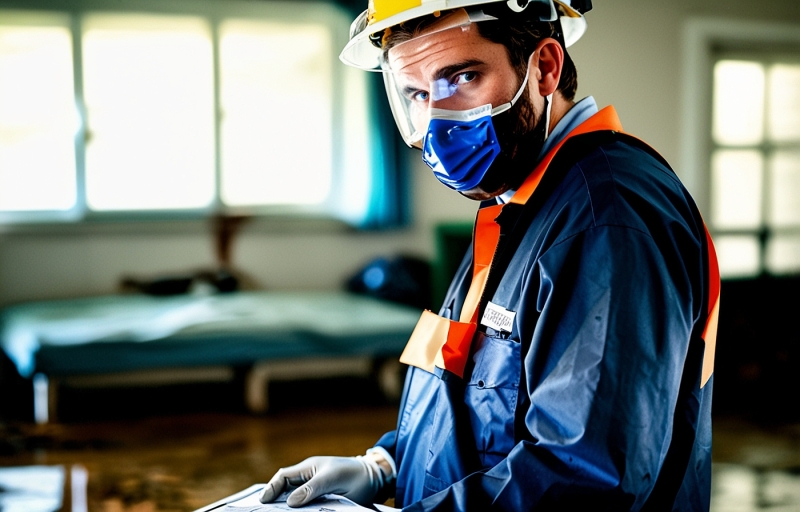Water damage in mobile homes can lead to costly repairs and long-term structural issues if not addressed promptly. Understanding how to prevent water damage in mobile homes is essential for maintaining a safe and comfortable living environment. From roof leaks and plumbing issues to poor drainage and high humidity, mobile homes are particularly vulnerable to moisture-related problems. By taking proactive steps such as regular inspections, sealing potential leak points, and ensuring proper ventilation, homeowners can significantly reduce the risk of water intrusion.
At COMMITTED TO QUALITY SERVICE, we specialize in fast, friendly, and professional water damage restoration. Our expert team uses advanced equipment specifically designed to dry and restore structures affected by severe water damage. Whether you’re dealing with a minor leak or a major flood, our goal is to protect your home and restore it to its original condition. Don’t wait until it’s too late—call us now at 855-933-7935 to learn more about our water damage and fire damage restoration services. Let us help you safeguard your mobile home from the costly effects of water damage.
Inspect the Roof Regularly
One of the most critical steps in preventing water damage in mobile homes is maintaining the integrity of the roof. The roof serves as the first line of defense against rain, snow, and other environmental elements. Due to the unique structure and materials used in mobile homes, they are particularly susceptible to roof-related issues that can lead to significant water damage if not addressed promptly. Regular inspections are essential to identify potential problems before they escalate into costly repairs or health hazards.
Mobile home roofs are often constructed with materials like metal or rubber, which, while durable, can degrade over time due to exposure to UV rays, temperature fluctuations, and moisture. According to the National Manufactured Housing Construction and Safety Standards Act, mobile home roofs should be inspected at least twice a year—preferably in the spring and fall. These inspections help detect early signs of wear and tear, such as cracks, rust, or loose seams, which can allow water to seep into the home.
"A small leak in a mobile home roof can lead to extensive water damage, mold growth, and even structural issues if left unchecked," warns the Federal Emergency Management Agency (FEMA).
During an inspection, homeowners should look for visible signs of damage such as discoloration, sagging, or bubbling in the ceiling, which may indicate water intrusion. It is also important to check for soft spots on the roof, which can be a sign of rot or water pooling. In addition, ensure that all roof penetrations, such as vents and skylights, are properly sealed and free from cracks or gaps.
Here are some key areas to focus on during a roof inspection:
- Check the roof coating for cracks or peeling. Recoating may be necessary every few years to maintain waterproofing.
- Inspect flashing around vents, chimneys, and skylights to ensure they are intact and properly sealed.
- Look for signs of rust or corrosion on metal roofs, which can compromise the roof’s integrity.
- Examine the gutters and downspouts to ensure they are clear of debris and directing water away from the home.
- Inspect the interior ceiling for water stains, mold, or mildew, which may indicate a hidden leak.
If any issues are found during the inspection, it is crucial to address them immediately. Delaying repairs can lead to more extensive damage and higher repair costs. For example, a small crack in a rubber roof can quickly expand, allowing water to infiltrate the insulation and walls, leading to mold growth and structural weakening.
According to the Insurance Information Institute, water damage is one of the most common and costly types of homeowner insurance claims, accounting for nearly 29 percent of all property damage claims. This statistic underscores the importance of proactive maintenance, especially for mobile homes, which may not have the same structural resilience as traditional homes.
In addition to regular inspections, homeowners should consider investing in professional roof maintenance services. A qualified roofing contractor can provide a more thorough assessment and perform necessary repairs or upgrades. This is particularly important after severe weather events, such as heavy rain, hail, or high winds, which can cause hidden damage that may not be immediately visible.
For those living in areas with frequent storms or high humidity, it may also be beneficial to install a roof-over system. This involves adding a new layer of roofing material over the existing roof, providing additional protection against leaks and improving insulation. While this is a more significant investment, it can extend the life of the roof and enhance the overall durability of the mobile home.
Homeowners should also be aware of the signs that indicate it is time to replace the roof entirely. These include persistent leaks, extensive rust or corrosion, and sagging or bowing of the roof structure. Replacing a mobile home roof can be a major undertaking, but it is often more cost-effective in the long run than repeatedly patching up a failing roof.
For more information on how to protect your mobile home from water damage, visit our comprehensive guide on water damage prevention. You can also explore our range of services designed to help homeowners maintain a safe and dry living environment.
"Preventive maintenance is the most effective way to avoid costly repairs and ensure the longevity of your mobile home," says the Manufactured Housing Institute.
In conclusion, regular roof inspections are a vital component of mobile home maintenance. By identifying and addressing potential issues early, homeowners can prevent water damage, protect their investment, and ensure a safe and healthy living space. Whether you choose to perform inspections yourself or hire a professional, staying vigilant about roof maintenance is key to avoiding the devastating effects of water intrusion.
For additional tips and resources, check out our blog at Projekt Restoration Blog or learn more about our mission to provide reliable restoration services at Our Mission.
Seal Windows and Doors Properly
One of the most critical steps in preventing water damage in mobile homes is ensuring that all windows and doors are properly sealed. These areas are common entry points for moisture, especially during heavy rain, storms, or when humidity levels are high. Over time, the seals around windows and doors can deteriorate due to exposure to the elements, leading to small gaps and cracks that allow water to seep in. This can result in a range of issues, from mold growth and wood rot to structural damage and increased energy costs. To avoid these problems, it is essential to inspect the seals around your windows and doors regularly. Look for signs of wear such as peeling caulk, cracked weather stripping, or visible gaps. Replacing old or damaged seals with high-quality weatherproof materials can significantly reduce the risk of water intrusion.
In addition to visual inspections, it is advisable to perform a water test by spraying water around the window and door frames and checking for leaks inside. If any moisture is detected, it may be necessary to reseal the area or even replace the window or door if the damage is extensive. Using silicone-based caulk is often recommended for sealing because it is durable, flexible, and resistant to moisture. Weather stripping should also be replaced periodically to maintain a tight seal. Proper sealing not only prevents water damage but also improves insulation, making your mobile home more energy-efficient.
For mobile homeowners who are unsure about how to properly seal their windows and doors, seeking professional help can be a wise investment. Experts can assess the condition of your home’s exterior and recommend the best sealing solutions tailored to your specific needs. At Projekt Restoration, we offer a range of services designed to protect your home from water damage, including thorough inspections and preventative maintenance. You can also learn more about our approach and commitment to quality by visiting our about page. Taking proactive steps to seal your windows and doors can save you from costly repairs and ensure the long-term safety and comfort of your mobile home.
Maintain the Plumbing System
One of the most effective ways to prevent water damage in mobile homes is by keeping the plumbing system in optimal condition. Unlike traditional homes, mobile homes often have more compact and sometimes less durable plumbing setups, making them more susceptible to leaks, clogs, and pipe bursts. Regular inspections and maintenance of your plumbing system can help you identify potential issues before they escalate into costly repairs. Start by checking all visible pipes under sinks, behind toilets, and near water heaters for any signs of corrosion, moisture, or leaks. Even a small drip can lead to significant water damage over time if left unaddressed. It is also essential to monitor water pressure. Excessively high water pressure can strain pipes and joints, increasing the risk of leaks. Installing a pressure regulator can help maintain a safe and consistent water pressure throughout your mobile home.
Another critical aspect of plumbing maintenance is ensuring that all connections and fittings are secure. Loose fittings can cause slow leaks that may go unnoticed until they have already caused damage to walls, floors, or insulation. Pay special attention to areas where pipes connect to appliances like washing machines, dishwashers, and water heaters. These connections should be tight and free of rust or mineral buildup. Additionally, insulating your pipes, especially those located in crawl spaces or exterior walls, can prevent them from freezing during colder months. Frozen pipes are a common cause of water damage in mobile homes, as the expansion of ice can cause pipes to burst.
Routine drain cleaning is also vital. Clogged drains can lead to water backing up into sinks, tubs, or toilets, potentially causing overflow and water damage. Avoid using harsh chemical drain cleaners, as they can damage your pipes over time. Instead, opt for natural solutions or mechanical methods like a drain snake. Installing strainers in sinks and tubs can also help prevent debris from entering the plumbing system and causing blockages. Moreover, be mindful of what you flush down the toilet. Items like wipes, feminine hygiene products, and paper towels can easily clog pipes and lead to backups.
Water heaters are another component of the plumbing system that require regular attention. Sediment buildup in the tank can reduce efficiency and increase the risk of leaks or even tank failure. Flushing the water heater annually can help remove sediment and prolong its lifespan. Also, inspect the area around the water heater for any signs of moisture or rust, which could indicate a slow leak. If your water heater is more than 10-15 years old, consider replacing it with a newer, more efficient model to reduce the risk of unexpected failure.
For mobile homeowners who are not comfortable performing plumbing maintenance themselves, hiring a professional plumber for annual inspections is a wise investment. A licensed plumber can identify hidden issues, perform necessary repairs, and offer advice on how to maintain your system properly. This proactive approach can save you from the stress and expense of dealing with extensive water damage. If you are unsure about how to find a reliable professional, you can explore our services page to learn more about the plumbing and water damage prevention solutions we offer.
In addition to regular maintenance, it is important to be prepared for emergencies. Know where your main water shut-off valve is located and ensure it is easily accessible. In the event of a major leak or pipe burst, shutting off the water supply quickly can minimize damage. Keep basic plumbing tools and supplies on hand, such as a pipe wrench, plumber’s tape, and a plunger, so you can address minor issues promptly. Educating all household members on how to respond to plumbing emergencies can also make a significant difference in preventing extensive water damage.
Finally, staying informed about the condition of your mobile home’s plumbing system is key to long-term protection. Keep records of all inspections, repairs, and upgrades, and monitor your water bill for any unexplained increases, which could indicate a hidden leak. For more tips on identifying and addressing hidden issues, visit our guide on how to identify hidden water damage early. By taking these steps, you can ensure that your plumbing system remains reliable and efficient, significantly reducing the risk of water damage in your mobile home.
Check for Leaks Under Sinks and Appliances
One of the most common yet often overlooked sources of water damage in mobile homes is hidden leaks beneath sinks and appliances. These areas are particularly vulnerable because they are frequently out of sight, making it easy for small drips or moisture build-up to go unnoticed until significant damage has occurred. Regularly inspecting the plumbing connections under kitchen and bathroom sinks, as well as behind appliances like dishwashers, washing machines, and refrigerators, is essential for early detection. Look for signs such as dampness, discoloration, mold growth, or a musty odor, which can all indicate a slow leak. Even a minor leak can lead to serious issues over time, including wood rot, mold infestation, and structural weakening of the mobile home’s flooring and cabinetry. It is also important to check the condition of hoses and seals, especially in older units, as these components can degrade and crack with age. Replacing worn-out hoses with more durable, braided stainless steel versions can significantly reduce the risk of leaks. Additionally, installing water leak detectors under sinks and near appliances can provide an added layer of protection by alerting you to moisture before it causes extensive damage. For mobile homeowners who may not be familiar with plumbing systems, it can be beneficial to schedule periodic inspections with a professional. These experts can identify potential problem areas and recommend preventative measures tailored to your specific home layout. If you suspect a leak or have already noticed signs of water damage, it is crucial to act quickly. Delaying repairs can lead to more costly restoration work and potential health hazards due to mold growth. For more information on how to address these issues effectively, visit our services page or explore our detailed guide on how to identify hidden water damage early. Taking proactive steps to monitor and maintain the areas beneath sinks and appliances can go a long way in preserving the integrity and safety of your mobile home.
Install a Skirting System
One of the most effective ways to protect your mobile home from water damage is by installing a proper skirting system. Skirting, also known as underpinning, is the material that encloses the space beneath your mobile home. This barrier plays a crucial role in shielding the underside of your home from moisture, pests, and temperature fluctuations. Without adequate skirting, rainwater and melting snow can easily accumulate under your home, leading to mold growth, wood rot, and even structural damage over time. A well-installed skirting system helps to direct water away from the base of your home, reducing the risk of pooling and seepage that can compromise the foundation and flooring.
Skirting also acts as an insulator, helping to maintain a consistent temperature beneath your mobile home. This temperature regulation prevents condensation, which is a common cause of hidden water damage. By minimizing moisture buildup, skirting helps to preserve the integrity of plumbing lines and electrical systems that often run underneath mobile homes. In colder climates, skirting can prevent pipes from freezing and bursting, which is another major source of water damage. Choosing the right materials for skirting, such as vinyl, metal, or insulated panels, can enhance its effectiveness and durability. Each material offers different levels of protection, so it is important to select one that suits your local climate and budget.
Proper installation is key to ensuring that the skirting system functions as intended. It should be securely fastened and sealed to prevent water intrusion and should include ventilation to allow air circulation. Adequate ventilation is essential to prevent mold and mildew, which thrive in damp, enclosed spaces. Additionally, access panels should be incorporated into the skirting design to allow for easy inspection and maintenance of the area beneath the home. Regularly checking these panels can help you identify early signs of water damage before they escalate into costly repairs. For more information on how to detect early signs of moisture issues, you can refer to our guide on how to identify hidden water damage early.
Beyond protection from water, skirting also enhances the aesthetic appeal of your mobile home, giving it a more finished and permanent look. It can increase property value and improve energy efficiency, making it a worthwhile investment. If you are unsure about the best skirting options or how to install them correctly, consider consulting professionals who specialize in mobile home maintenance. At Projekt Restoration, we offer a range of services designed to help homeowners safeguard their properties from water and other types of damage. Our team can assess your home’s specific needs and recommend the most effective skirting solutions.
Incorporating a skirting system is not just about aesthetics or insulation; it is a proactive step in a comprehensive water damage prevention strategy. When combined with other measures such as proper drainage, roof maintenance, and regular inspections, skirting significantly reduces the risk of long-term water-related issues. To learn more about our approach and commitment to protecting homes, visit our our mission page. Taking the time to install and maintain a quality skirting system can save you from the stress and expense of dealing with water damage in the future.
Use a Moisture Barrier Under the Home
One of the most effective strategies for preventing water damage in mobile homes is installing a moisture barrier beneath the structure. Mobile homes are particularly vulnerable to ground moisture due to their elevated design and limited insulation from the earth below. Without a proper barrier, moisture from the soil can rise and accumulate under the home, leading to a host of problems such as mold growth, wood rot, and even structural damage. A moisture barrier, typically made from heavy-duty polyethylene plastic, acts as a shield that prevents ground moisture from seeping into the subfloor and other critical components of the mobile home. This barrier not only helps maintain the structural integrity of the home but also contributes to a healthier indoor environment by reducing the risk of mold and mildew. Installing a moisture barrier is a proactive measure that can save homeowners from costly repairs and health hazards in the long run. It is especially important in areas with high humidity or frequent rainfall, where the ground remains damp for extended periods. For those unfamiliar with the installation process, it may be beneficial to consult professionals who specialize in water damage prevention and restoration. These experts can assess the specific needs of your mobile home and recommend the most suitable type of barrier. Additionally, regular inspections of the crawl space can help ensure that the barrier remains intact and effective over time. If you notice signs of moisture such as musty odors, soft flooring, or visible mold, it may be time to evaluate the condition of your moisture barrier. For more information on how moisture can impact your home and what steps you can take to protect it, visit our blog or reach out through our contact page to speak with a knowledgeable team member. Taking the time to install and maintain a moisture barrier is a small investment that can yield significant benefits in preserving the safety and longevity of your mobile home.
Clean and Maintain Gutters and Downspouts
One of the most effective ways to prevent water damage in mobile homes is by ensuring that gutters and downspouts are regularly cleaned and properly maintained. These components play a crucial role in directing rainwater away from the structure, protecting the roof, walls, and foundation from moisture-related issues. When gutters become clogged with leaves, twigs, dirt, or other debris, water can overflow and seep into areas it should not reach. This can lead to a range of problems, including roof leaks, siding deterioration, and even foundation erosion. In mobile homes, which often have less robust foundations than traditional houses, the consequences of water mismanagement can be even more severe. Regular inspections, especially during the fall and spring, can help identify blockages or damage early. It is also important to ensure that downspouts extend far enough away from the home to prevent pooling water near the base. Installing gutter guards can be a helpful preventive measure to reduce the frequency of clogs. Additionally, checking for signs of rust, sagging, or separation from the roofline can help homeowners address minor issues before they escalate into costly repairs. For those unsure about the condition of their gutter system or how to maintain it, seeking professional assistance can be a wise investment. Companies that specialize in home restoration services often offer inspections and maintenance plans tailored to mobile homes. Understanding the importance of proper water drainage and taking proactive steps to maintain these systems can significantly reduce the risk of water damage. For more insights into protecting your home from water-related issues, visit our blog where we share expert tips and advice.
Monitor Indoor Humidity Levels
Maintaining proper indoor humidity levels is a crucial step in preventing water damage in mobile homes. Excess moisture in the air can lead to a variety of issues, including mold growth, wood rot, and the deterioration of building materials. Mobile homes, due to their unique construction and materials, are particularly susceptible to these problems. When humidity levels rise above the recommended range of 30 to 50 percent, condensation can form on windows, walls, and ceilings. Over time, this moisture can seep into structural components, weakening them and creating an ideal environment for mold and mildew to thrive. This not only compromises the integrity of your home but also poses serious health risks to its occupants.
To effectively manage indoor humidity, it is essential to use tools such as hygrometers, which measure the moisture content in the air. These devices are affordable and easy to use, allowing homeowners to monitor humidity levels in real time. If levels are consistently high, consider using a dehumidifier to remove excess moisture. In areas like bathrooms and kitchens, where humidity tends to spike due to cooking and bathing, installing exhaust fans can help ventilate the space and reduce moisture buildup. Additionally, ensuring that your mobile home is properly insulated and sealed can prevent outside humidity from entering and indoor air from becoming trapped.
Another important aspect of humidity control is regular maintenance of HVAC systems. Air conditioning units and heaters play a significant role in regulating indoor air quality and moisture levels. Dirty filters or malfunctioning components can hinder their performance, leading to increased humidity. Schedule routine inspections and cleanings to keep these systems running efficiently. Also, be mindful of indoor activities that contribute to moisture, such as drying clothes indoors or overwatering houseplants. Simple behavioral changes can make a significant difference in maintaining a balanced indoor environment.
In mobile homes, where space is limited and ventilation may be less effective than in traditional houses, it is especially important to be proactive. Inspect areas that are prone to moisture accumulation, such as under sinks, around windows, and near appliances like washing machines and refrigerators. These spots are often the first to show signs of water damage or mold growth. If you notice any musty odors, discoloration, or peeling paint, it may be an indication of excess humidity or hidden water damage. For more detailed guidance on spotting early signs of moisture issues, visit our page on how to identify hidden water damage early.
Proper ventilation is another key factor in controlling humidity. Open windows when weather permits to allow fresh air to circulate, and use ceiling fans to help distribute air evenly throughout your home. In colder months, be cautious of over-humidifying your space with humidifiers, as this can lead to condensation on cold surfaces. Balancing indoor air requires attention to both temperature and moisture, so consider using a combination of tools and strategies to maintain optimal conditions.
If you are unsure about the current state of your mobile home’s humidity levels or suspect that moisture may already be causing damage, it is wise to consult with professionals. At Projekt Restoration, we offer a range of services designed to assess and address water-related issues in mobile homes. Our team can help you identify problem areas, recommend solutions, and implement effective measures to protect your home from future damage. You can also learn more about our company and values by visiting our about page.
In conclusion, keeping indoor humidity in check is a fundamental part of water damage prevention in mobile homes. By using the right tools, maintaining your HVAC systems, and adopting good ventilation practices, you can significantly reduce the risk of moisture-related problems. Regular monitoring and timely intervention are key to preserving the structural integrity and comfort of your mobile home.
Insulate Pipes to Prevent Freezing
One of the most effective ways to prevent water damage in mobile homes, especially during colder months, is by properly insulating your plumbing system. Unlike traditional homes, mobile homes often have plumbing that runs through unheated crawl spaces or along exterior walls, making them more vulnerable to freezing temperatures. When water inside the pipes freezes, it expands, which can cause the pipes to crack or burst. This not only leads to costly repairs but also increases the risk of significant water damage to your home’s interior and structural components. To avoid such issues, it is essential to insulate both hot and cold water pipes using foam pipe insulation sleeves, heat tape, or fiberglass insulation. These materials help maintain a consistent temperature within the pipes, reducing the likelihood of freezing. Additionally, sealing gaps and cracks around pipes where cold air might enter can further enhance the effectiveness of your insulation efforts. Regularly inspecting your plumbing system for signs of wear or damage is also crucial, especially before the onset of winter. If you are unsure about how to properly insulate your pipes or need professional assistance, consider reaching out to experts who specialize in water damage prevention services. They can assess your mobile home’s unique layout and recommend tailored solutions to safeguard your plumbing. Moreover, understanding the broader implications of water damage and how it can affect your home’s safety and value is essential. For more insights into protecting your property, explore our detailed resources on identifying hidden water damage early. Taking proactive steps now can save you from the stress and expense of emergency repairs later, ensuring your mobile home remains safe, dry, and comfortable throughout the year.
Repair Cracks in Walls and Floors
One of the most effective ways to prevent water damage in mobile homes is by addressing and repairing any cracks in walls and floors as soon as they appear. These seemingly minor imperfections can quickly become major entry points for moisture, especially during heavy rains or in areas with high humidity. Cracks can form due to natural settling of the mobile home, temperature fluctuations, or even poor construction practices. When left unattended, these openings allow water to seep into the structure, leading to mold growth, wood rot, and structural weakening. Early detection and prompt repair are essential to maintaining the integrity of your home and avoiding costly repairs down the line.
Begin by conducting a thorough inspection of both interior and exterior walls, as well as flooring surfaces. Look for visible signs of cracking, bubbling paint, or discoloration, which may indicate water intrusion. Pay special attention to areas around windows, doors, and plumbing fixtures, as these are common spots where cracks can develop. Once identified, clean the area thoroughly to remove any dirt or debris that could interfere with the repair process. For small hairline cracks, a high-quality waterproof sealant or caulk can be used to fill the gap and prevent moisture from entering. Larger cracks may require more extensive repairs, such as applying a patching compound or even replacing sections of drywall or flooring.
It is also important to understand the underlying cause of the cracks to prevent them from reoccurring. For instance, if the cracks are due to foundation issues or shifting of the mobile home, you may need to consult a professional to stabilize the structure. Regular maintenance and monitoring can help catch these problems early. In addition, using moisture-resistant materials in areas prone to dampness, such as bathrooms and kitchens, can provide an extra layer of protection against water damage.
Preventative measures like sealing cracks not only protect your home from water damage but also improve energy efficiency by reducing drafts and heat loss. This can lead to lower utility bills and a more comfortable living environment. Moreover, keeping your mobile home in good condition enhances its resale value and extends its lifespan. For those unsure about how to properly repair cracks or assess the extent of potential water damage, seeking professional assistance is highly recommended. You can explore the range of expert services available to help you maintain your mobile home in top condition.
Incorporating regular inspections into your home maintenance routine is key. Seasonal checks, especially before and after extreme weather conditions, can help you stay ahead of potential issues. If you notice persistent or worsening cracks, it may be a sign of hidden water damage. In such cases, learning how to identify hidden water damage early can be invaluable in preventing long-term damage. By taking proactive steps to repair cracks in walls and floors, you not only safeguard your mobile home from water damage but also ensure a healthier and more secure living environment for you and your family.
Ensure Proper Drainage Around the Home
One of the most critical steps in preventing water damage in mobile homes is ensuring that water is effectively directed away from the structure. Proper drainage around your home plays a vital role in maintaining the integrity of the foundation, skirting, and undercarriage. Mobile homes, due to their unique construction and placement, are particularly vulnerable to water accumulation, which can lead to serious issues such as mold growth, wood rot, and even structural instability. To mitigate these risks, homeowners must take proactive measures to manage surface water and groundwater effectively.
Start by evaluating the grading around your mobile home. The ground should slope away from the home on all sides, ideally at a gradient of at least six inches over the first ten feet. This slope ensures that rainwater and melting snow naturally flow away from the foundation rather than pooling around it. If the grading is insufficient or has settled over time, consider adding soil to build up the slope. Avoid using mulch or other materials that retain moisture near the base of your home, as these can contribute to long-term water exposure.
Gutters and downspouts are another essential component of a well-functioning drainage system. These features collect rainwater from the roof and channel it away from the home’s perimeter. Ensure that your gutters are clean and free of debris, especially during the fall and spring seasons when leaves and twigs are more likely to accumulate. Downspouts should extend at least four to six feet away from the home, and splash blocks or downspout extenders can be used to further direct water flow. Regular maintenance of these systems is crucial to prevent clogs and overflows that can lead to water damage.
In addition to grading and gutter systems, consider installing a French drain or other subsurface drainage solutions if your mobile home is located in an area with high water tables or poor soil drainage. A French drain consists of a perforated pipe surrounded by gravel and wrapped in a water-permeable fabric. It collects excess groundwater and redirects it away from the home, reducing the risk of water seeping into the crawl space or undercarriage. These systems are particularly beneficial in regions that experience heavy rainfall or prolonged wet seasons.
Skirting around the base of your mobile home also plays a role in drainage and moisture control. While skirting helps insulate and protect the underside of the home, it can also trap moisture if not properly ventilated. Ensure that your skirting includes adequate ventilation openings to allow air circulation and prevent condensation buildup. In some cases, installing a vapor barrier beneath the home can further reduce moisture accumulation and protect against mold and mildew.
Landscaping choices can also influence drainage effectiveness. Avoid planting trees or large shrubs too close to the home, as their root systems can disrupt soil grading and interfere with drainage paths. Additionally, consider using gravel or other permeable materials for walkways and patios near the home to promote water infiltration into the ground rather than surface runoff. If you have flower beds or garden areas adjacent to the home, use edging to contain the soil and prevent it from washing against the foundation during heavy rains.
For mobile homeowners who are unsure about their drainage setup or who suspect existing water issues, it may be beneficial to consult with a professional. A qualified contractor can assess the site and recommend appropriate solutions tailored to your specific location and soil conditions. At Projekt Restoration, we offer a range of services designed to help homeowners protect their properties from water damage, including drainage assessments and moisture control strategies.
It is also important to stay informed about the signs of potential water damage. Musty odors, soft spots in flooring, and visible mold growth are all indicators that water may be accumulating where it should not. Early detection is key to minimizing damage and repair costs. For more information on identifying these issues, visit our guide on how to identify hidden water damage early.
In conclusion, managing water flow around your mobile home is not just a matter of convenience but a crucial aspect of home maintenance. By ensuring proper grading, maintaining gutters and downspouts, considering subsurface drainage options, and making smart landscaping choices, you can significantly reduce the risk of water damage. Regular inspections and timely interventions will help preserve the structural integrity of your mobile home and maintain a safe, dry living environment for years to come.
Use Water Leak Detectors
One of the most effective ways to prevent water damage in mobile homes is by installing water leak detectors. These small yet powerful devices are designed to alert homeowners at the earliest signs of a leak, giving them the opportunity to take immediate action before the issue escalates. Mobile homes are particularly vulnerable to water damage due to their unique construction and often limited access to plumbing systems. A minor leak in a pipe or appliance can quickly lead to significant structural damage, mold growth, and costly repairs if not detected early. Water leak detectors can be strategically placed near high-risk areas such as under sinks, behind toilets, near water heaters, and around washing machines. When moisture is detected, the device sends an alert, either through an audible alarm or a notification to your smartphone, depending on the model. This real-time notification system allows homeowners to respond quickly, shutting off the water supply or contacting a professional to address the issue. In addition to preventing damage, these detectors can also help conserve water by identifying leaks that might otherwise go unnoticed for long periods. For mobile homeowners looking to enhance their water damage prevention strategy, integrating leak detectors with a smart home system can offer even greater control and peace of mind. These systems can be programmed to automatically shut off the water supply when a leak is detected, further minimizing potential damage. Regular maintenance and testing of these devices are essential to ensure they function properly when needed. For more information on how to protect your mobile home from water-related issues, visit our services page or explore our detailed guide on how to identify hidden water damage early. Taking proactive steps like installing water leak detectors not only safeguards your property but also provides long-term savings and peace of mind.
Schedule Annual Professional Inspections
One of the most effective ways to safeguard your mobile home from water damage is by ensuring that it undergoes a thorough inspection by a qualified professional at least once a year. While regular maintenance and personal vigilance are essential, a trained expert can detect early signs of water intrusion that may not be visible to the untrained eye. These inspections typically involve a comprehensive evaluation of the roof, plumbing systems, windows, doors, and the undercarriage of the mobile home. Professionals use specialized tools and techniques to identify hidden leaks, moisture buildup, and structural vulnerabilities that could lead to significant damage if left unaddressed.
Annual inspections are particularly important for mobile homes due to their unique construction and materials, which can make them more susceptible to water damage compared to traditional homes. For instance, the seams and joints in mobile homes are potential weak points where water can seep in, especially during heavy rain or snow. A professional inspector will assess these areas and recommend necessary repairs or upgrades to prevent future issues. They can also evaluate the condition of skirting and insulation, which play a critical role in protecting the underside of the home from moisture and pests.
In addition to identifying existing problems, these inspections serve as a preventive measure. By catching small issues early, homeowners can avoid the high costs and extensive repairs associated with severe water damage. For example, a minor roof leak that goes unnoticed can eventually lead to mold growth, wood rot, and even compromise the structural integrity of the home. An annual inspection helps ensure that such problems are addressed promptly, maintaining the safety and value of your property.
Moreover, professional inspectors often provide detailed reports and maintenance recommendations tailored to your specific mobile home. These insights can guide your ongoing upkeep efforts and help you prioritize repairs based on urgency and budget. Some inspection services may also include moisture readings, thermal imaging, and other diagnostic tools that offer a deeper understanding of your home’s condition. This level of detail is invaluable for making informed decisions about repairs and improvements.
Choosing a reputable inspection service is crucial. Look for companies with experience in mobile home maintenance and a solid track record of customer satisfaction. You can learn more about the types of services offered by visiting the services page of trusted restoration and inspection providers. Additionally, understanding the mission and values of a company can give you confidence in their commitment to quality and customer care, which you can explore on their our mission page.
Incorporating annual professional inspections into your home maintenance routine not only helps prevent water damage but also extends the lifespan of your mobile home. It provides peace of mind knowing that your living environment is safe, dry, and well-maintained. Whether you are a new mobile homeowner or have lived in one for years, investing in regular inspections is a proactive step toward protecting your home and avoiding costly repairs down the line.
Educate Household Members on Water Safety Practices
One of the most effective ways to prevent water damage in mobile homes is by ensuring that every household member understands and follows essential water safety practices. Education plays a crucial role in maintaining the integrity of your home’s plumbing and water systems. Start by teaching everyone how to properly use water fixtures, such as faucets, toilets, and showers, to avoid unnecessary strain on pipes. Encourage family members to report any unusual signs like dripping sounds, water stains, or musty odors immediately, as these can be early indicators of hidden leaks. Knowing how to shut off the main water supply in case of an emergency is also vital; make sure all adults and older children know where the shut-off valve is located and how to operate it. Additionally, explain the importance of not flushing inappropriate items down the toilet or pouring grease and food scraps down the sink, as these habits can lead to clogs and eventual water damage. Regularly reviewing these practices helps reinforce their importance and keeps everyone vigilant. You can also use visual aids or simple checklists to make the learning process more engaging and memorable. For more insights on maintaining a safe and damage-free home environment, explore our detailed blog or visit our about page to learn how our team supports homeowners in protecting their properties. By fostering a culture of awareness and responsibility, you significantly reduce the risk of water-related issues and ensure a safer living space for everyone in your mobile home.
Sure! Here’s a suitable FAQ section for a blog post on "How to Prevent Water Damage in Mobile Homes," incorporating key points typically covered in such content:
Frequently Asked Questions (FAQ)
- Why is water damage a serious issue in mobile homes?
Water damage can compromise the structural integrity of a mobile home, leading to costly repairs, mold growth, and health hazards. Mobile homes are particularly vulnerable due to their construction materials and design, which may not be as water-resistant as traditional homes.
- What are the most common causes of water damage in mobile homes?
Common causes include roof leaks, plumbing issues, poor sealing around windows and doors, damaged skirting, and improper drainage around the home. Regular maintenance and inspections can help identify these problems early.
- How can I prevent roof leaks in my mobile home?
Inspect your roof regularly for cracks, missing shingles, or soft spots. Apply a waterproof roof coating every few years and ensure that flashing and seals around vents and skylights are intact. Clean gutters and downspouts to prevent water buildup.
- What should I do to protect my plumbing system?
Check for leaks under sinks, around toilets, and behind appliances. Insulate exposed pipes to prevent freezing in colder months. Replace old or damaged hoses and fittings, and consider installing a water leak detection system for early alerts.
- How important is skirting in preventing water damage?
Skirting helps protect the underside of your mobile home from moisture, pests, and debris. Ensure your skirting is intact, properly ventilated, and free from holes or gaps. This helps prevent water from pooling underneath the home, which can lead to mold and rot.
- Can landscaping affect water damage risk?
Yes. Ensure the ground around your mobile home slopes away from the foundation to promote proper drainage. Avoid planting water-intensive vegetation near the home and consider installing a French drain or other drainage solutions if water tends to collect nearby.
- How often should I inspect my mobile home for water damage?
Conduct a thorough inspection at least twice a year—ideally in the spring and fall. Also, check after heavy storms or extreme weather events. Early detection is key to preventing minor issues from becoming major problems.
- What are signs of existing water damage I should look out for?
Watch for discoloration on walls or ceilings, musty odors, soft or warped flooring, peeling paint or wallpaper, and visible mold. These signs often indicate hidden leaks or moisture buildup.
- Is it worth hiring a professional for water damage prevention?
While many preventive steps can be done yourself, hiring a professional for a detailed inspection—especially if you suspect hidden damage—can be a wise investment. They can identify issues you might miss and recommend effective solutions.
- What should I do if I discover water damage?
Act quickly. Stop the source of the water, dry the affected area thoroughly, and remove any damaged materials. Depending on the severity, you may need to contact a water damage restoration specialist to prevent mold and further structural issues.
This FAQ section can help readers understand the importance of water damage prevention in mobile homes and provide practical steps to protect their property.



